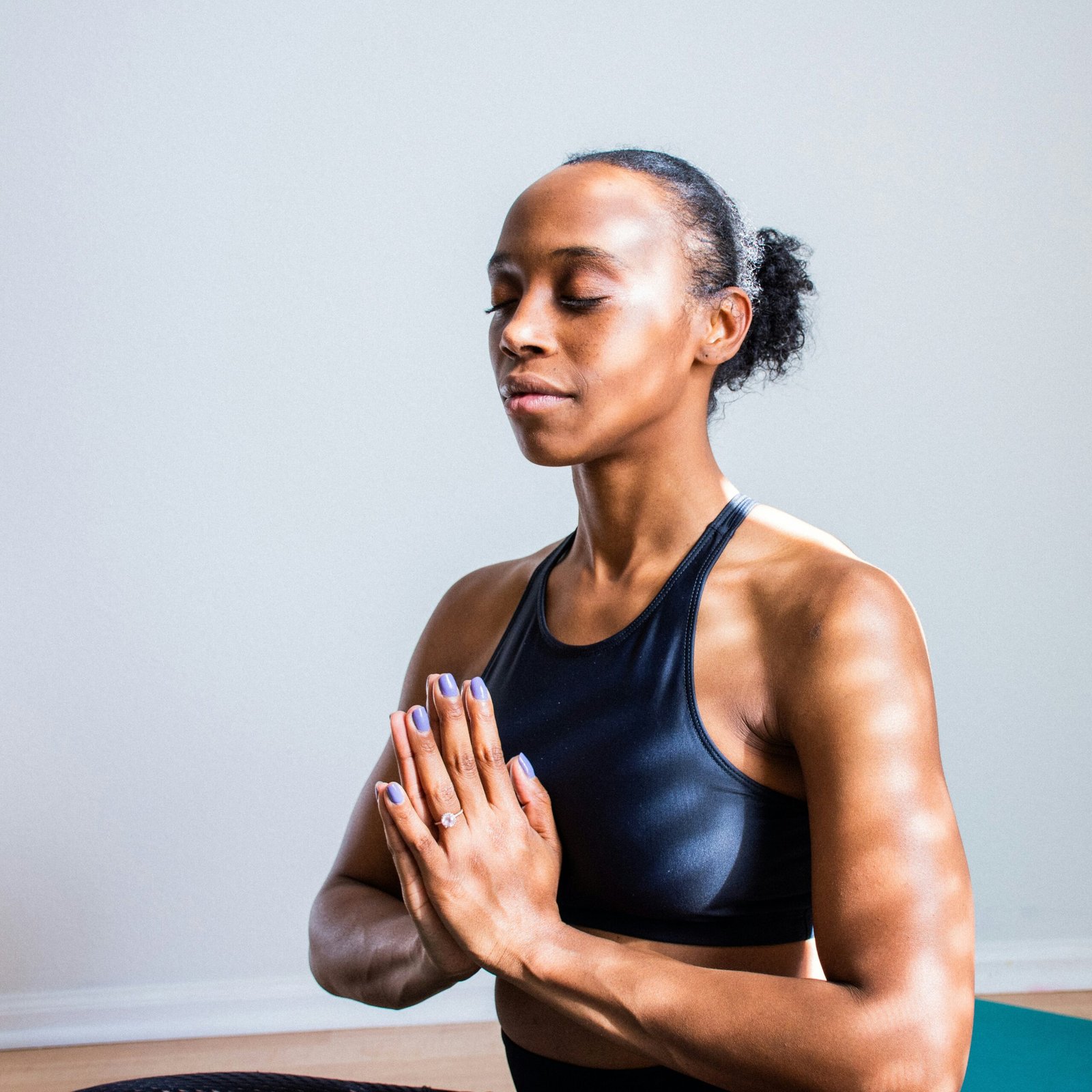Did you know that a staggering 63% of smartphone users are now actively tracking their health metrics through various digital tools? This isn’t just a fleeting trend; fitness trackers & apps are powerful indication of how deeply integrated technology has become in our pursuit of well-being. From the simple pedometers of yesteryear, counting our daily steps, we’ve witnessed a remarkable evolution. Today, sophisticated smartwatches, sleek fitness bands, and intuitive mobile applications offer a comprehensive suite of tools to monitor and understand our bodies like never before.
This guide dives deep into the world of fitness trackers and apps, exploring their capabilities, benefits, and how they can empower you on your journey to a healthier lifestyle. We’ll unravel the science behind the technology, help you choose the right solution for your needs, and provide practical tips for maximizing its potential. Get ready to discover how modern fitness tech can be more than just a gadget – it can be your personalized companion for smarter health tracking and lasting well-being.
II. Understanding Fitness Technology
Before we delve into the advantages, let’s clarify what exactly constitutes fitness technology. It broadly encompasses two main categories:
A. What are fitness trackers?
These are typically wearable devices designed specifically to monitor various aspects of your physical activity and physiological data. They come in several form factors:
- Wearable devices:
- Smartwatches: Offering a blend of smartwatch functionalities and comprehensive fitness tracking (e.g., Apple Watch, Samsung Galaxy Watch, Fitbit Versa).
- Fitness bands: Sleek and often more focused on core fitness metrics with longer battery life (e.g., Fitbit Inspire, Xiaomi Mi Band).
- Clip-on trackers: Discreet devices that can be attached to clothing to track basic activity (less common now).
- Key tracking capabilities: While features vary, most fitness trackers offer:
- Step counting: Measuring daily movement and distance covered
- Heart rate monitoring: Tracking resting heart rate, active heart rate during workouts, and heart rate variability (HRV).
- Sleep tracking: Analyzing sleep duration, stages (light, deep, REM), and sleep quality.
B. What are fitness apps?
These are software applications designed to be used primarily on smartphones, often working in conjunction with wearable trackers but also capable of standalone tracking.
- Standalone smartphone applications: Utilizing the phone’s sensors (accelerometer, GPS) to track basic activity like steps and running distance (e.g., Google Fit, Apple Health).
- Specialized vs. all-in-one platforms:
- Specialized apps: Focusing on specific activities like running (e.g., Strava, Nike Run Club), cycling (e.g., Komoot), or nutrition tracking (e.g., MyFitnessPal).
- All-in-one platforms: Offering a broader range of tracking and features, often syncing with dedicated wearable devices (e.g., Fitbit app, Garmin Connect).
III. Key Benefits of Using Fitness Tech
The growing popularity of fitness trackers and apps isn’t accidental. They offer a compelling array of benefits that can positively impact various facets of our health:
A. Physical Health Advantages
- Activity monitoring & motivation: Seeing your daily steps, active minutes, and calories burned can be a powerful motivator to move more. Setting goals within the app and receiving reminders can nudge you towards a more active lifestyle. As Dr. Sarah Miller, a leading sports psychologist, notes, “The simple act of quantifying activity can increase awareness and drive behavioral change. Seeing progress, even small increments, reinforces positive habits.”
- Heart rate and workout intensity tracking: Real-time heart rate monitoring allows you to optimize your workouts by staying within target heart rate zones for different fitness goals (e.g., fat burning, cardiovascular improvement). This ensures you’re working hard enough without overexerting yourself. Many trackers also provide insights into your heart rate variability (HRV), a marker of your body’s recovery and stress levels.
- Sleep pattern analysis: Understanding your sleep duration, stages, and any disturbances can be invaluable for improving sleep quality. Many trackers provide a “sleep score” and insights into factors affecting your rest, helping you identify patterns and make adjustments to your sleep hygiene.
B. Mental Health Perks
- Stress level monitoring: Some advanced trackers utilize heart rate variability and other physiological data to estimate your stress levels throughout the day.12 This awareness can prompt you to take breaks, practice mindfulness, or engage in stress-reducing activities.
- Habit formation support: Many apps allow you to track various healthy habits beyond just activity, such as hydration, medication intake, or even mindful moments.13 Setting reminders and tracking your consistency can aid in building positive routines.
- Achievement psychology (gamification): Fitness apps often incorporate gamified elements like virtual badges, challenges with friends, and progress visualizations.14 These features tap into our innate desire for achievement and reward, making the journey towards a healthier lifestyle more engaging and enjoyable. Real user, Emily Carter, shares, “The virtual badges I earn on my fitness app might seem silly, but they genuinely motivate me to push a little harder each day. It’s like a little game that keeps me on track.”
C. Long-Term Wellness Impact
- Chronic condition prevention: By encouraging regular physical activity and healthy habits, fitness tech can play a role in preventing chronic conditions like heart disease, type 2 diabetes, and certain types of cancer. Early detection of unusual heart rate patterns can also prompt users to seek medical attention.
- Health trend analysis: Over time, fitness trackers and apps build a comprehensive history of your health data. This allows you to identify trends, understand how different lifestyle choices impact your well-being, and track your progress towards long-term goals.
- Doctor communication tool: The detailed data collected by fitness trackers can be valuable information to share with your doctor. It can provide objective insights into your activity levels, sleep patterns, and heart rate, aiding in diagnosis and treatment plans.15
(Infographic Idea: A visually appealing graphic showcasing the interconnected benefits of fitness tech, linking physical activity, sleep, mental well-being, and long-term health outcomes.)
IV. Choosing the Right Solution
With a plethora of options available, selecting the right fitness tracker or app can feel overwhelming. Here’s a guide to help you navigate the choices:
A. Device vs. app: When each works best
- Device (Smartwatch/Fitness Band): Ideal for continuous, passive tracking of a wide range of metrics (steps, heart rate, sleep) without needing constant interaction with your phone.16 Best for individuals serious about tracking their activity and physiological data throughout the day and night.
- App (Standalone): A good starting point for basic activity tracking if you primarily want to monitor steps and running distance using your phone’s built-in sensors. Suitable for casual users or those who prefer not to wear a dedicated device. However, accuracy can be less reliable, and continuous heart rate and sleep tracking are typically not available.
B. Top considerations:
- Accuracy levels: Research reviews and comparisons to understand the accuracy of different devices, particularly for heart rate and sleep monitoring. Some devices are more rigorously tested and validated than others.
- Battery life: Consider how often you’re willing to charge your device. Smartwatches often require daily charging, while some fitness bands can last for several days or even weeks on a single charge.
- Data synchronization: Ensure the device or app seamlessly syncs data with your smartphone and other platforms you might use. User-friendliness of the app interface is also crucial.
- Privacy policies: Understand how your health data is collected, stored, and used by the company. Choose reputable brands with transparent and robust privacy policies.
(Comparison Table Idea: A table comparing 3-4 popular fitness trackers and 2-3 popular fitness apps, highlighting key features, price range, battery life, compatibility, and user ratings.)
C. Budget-friendly options:
You don’t need to break the bank to benefit from fitness tech. Many affordable fitness bands and basic standalone apps offer core tracking features.17 Researching budget-friendly options from reputable brands can provide a great entry point into the world of health tracking.
V. Maximizing Your Fitness Tech
Simply owning a fitness tracker or downloading an app isn’t enough. To truly harness its power, consider these strategies:
A. Setting realistic goals:
Use the data to understand your baseline activity levels and set achievable, step-by-step goals. Don’t try to overhaul everything at once. Small, consistent progress is key.
B. Interpreting data effectively:
Don’t just look at the numbers. Understand what the data means in the context of your goals and overall health. Many apps provide insights and explanations to help you make sense of the information.
C. Avoiding common pitfalls:
- Obsession: Avoid becoming overly fixated on the numbers. Fitness tech is a tool to guide you, not to dictate your every move. Listen to your body and prioritize overall well-being over perfect metrics.
- Data overload: Don’t try to track everything at once. Focus on the metrics that are most relevant to your goals and gradually incorporate others as you become more comfortable.
D. Combining devices and apps for best results: Often, using a dedicated fitness tracker paired with its companion app provides the most comprehensive and accurate data. You can also integrate data with other health and fitness apps for a holistic view.
VI. The Future of Fitness Tracking
The field of fitness tracking is constantly evolving, promising even more sophisticated and personalized health insights in the years to come:
A. Emerging technologies:
- AI coaching: Expect more advanced AI-powered coaching features that provide personalized workout plans, nutritional advice, and motivation based on your tracked data and goals.18
- Continuous glucose monitoring (CGM) integration: While some devices are starting to incorporate this, wider integration with CGMs will provide valuable insights for individuals managing diabetes and those interested in understanding their metabolic health.
- Advanced biomarker tracking: Future devices may incorporate sensors to track a wider range of biomarkers through sweat, saliva, or even non-invasively through the skin, providing even deeper insights into our health.19
(Expert Quote Idea: A short quote from a tech futurist or healthcare innovation expert discussing the potential of AI and advanced sensors in the future of fitness tracking.)
B. Integration with healthcare systems:
We’ll likely see greater integration of fitness tracker data with electronic health records, allowing doctors to have a more comprehensive understanding of their patients’ health and activity levels.
C. Predictive health analytics: As data sets grow and AI algorithms become more sophisticated, fitness tech may move towards predictive health analytics, potentially identifying early warning signs of health issues before they become apparent.20
VII. Conclusion
Fitness trackers and apps have revolutionized how we monitor and engage with our health.21 They offer a powerful combination of data, motivation, and personalized insights that can empower us to make smarter choices and achieve our wellness goals.22 While willpower and traditional methods still hold value, modern fitness technology provides an invaluable assist in understanding our bodies and fostering sustainable, healthy habits.
Don’t feel pressured to invest in the most expensive or feature-rich device right away. Start small. Explore a basic fitness band or a user-friendly app and begin tracking one or two key metrics. The journey to a healthier you is a marathon, not a sprint, and fitness tech can be a valuable companion along the way.
Now, we’d love to hear from you! What are your favorite fitness trackers or apps, and what benefits have you experienced? Share your experiences in the comments below!




[…] The Future of Fitness: Apps Revolution in Home Gym […]
[…] The Wearable Revolution: Your Body’s Personal Data Scientist […]